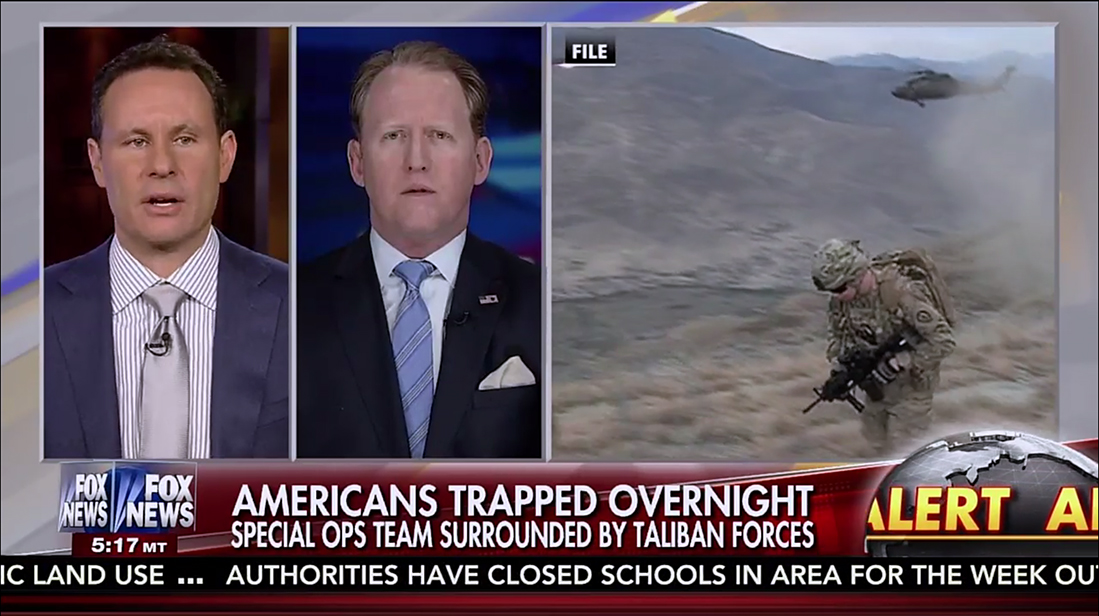American Bloodshed in Marjah, Afghanistan: One Green Beret Dead, Two Injured

O’Neill Reacts to U.S. “Backing Out” Despite Unseasonably “Intense Combat.”
Winter in Afghanistan typically brings with it a cooling off of insurgent violence. Yet in the wake of a deadly Taliban attack against U.S. Special Forces in Marjah this week, it’s becoming increasingly obvious the heat is on. The intense overnight fight left one Green Beret dead, two U.S. soldiers injured and a U.S. helicopter down. It’s unclear if the chopper was shot down or possibly clipped a structure and lost control.
As the news broke, former Navy SEAL Robert O’Neill appeared on “FOX Alert” to assess the events with FOX News anchor Brian Kilmeade.
Kilmeade: “Rob, as you see what happened, can you start to put together what went wrong?”
O’Neill: “They’re engaged in heavy combat on the ground. Special operations helicopters came in to assist with some U.S.-led Afghan forces on the ground. They’re saying one of the helicopters was hit potentially with mortar fire. That’s heavy fighting which is true in Marjah for the past six months. It’s actually rare to fight this heavily in winter in Afghanistan. The Taliban is making a move now because they know we’re going to be backing out.”
Kilmeade: “Also, we hear there are reports that ISIS is coming in, too, and the one goal is to get the heroin, get the poppy.”
O’Neill: “That’s what they want to do and Helmand (southern Afghanistan) is one of the world’s suppliers of poppy. ISIS guys aren’t necessarily coming in. These are just more Pashtun Taliban being funded by ISIS out of Syria. More money for them as long as they’re more brutal. They are waving the ISIS flag and pledging allegiance to al-Baghdadi in Syria.”
Kilmeade: “Rob, what do we do? The General has to beg to keep 9,800 there. They’re supposed to cut the troop level in half in less than a year. What’s our goal here?”
O’Neill: “The goal is to back out but we can’t back out the way we are. We had this thing mostly under control when I was there in 2005 and then we started to give timelines of when we’re going to leave. Even the Afghans that are on our side realize that once we leave the Taliban is still going to be there. That’s why you see a lot of green-on-blue attacks, green-on-green attacks. It’s a very difficult situation. Afghanistan has not been stabilized. There are better ways of doing this than saying we’re done, we’re leaving.”
